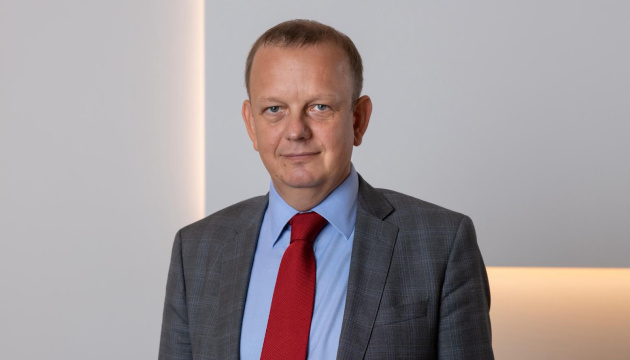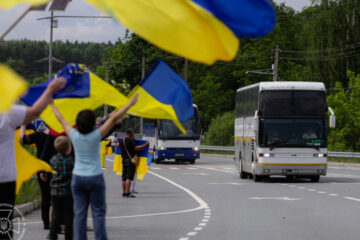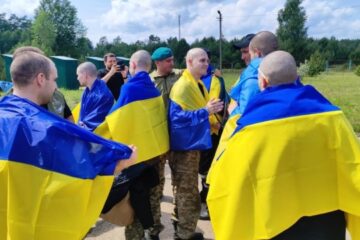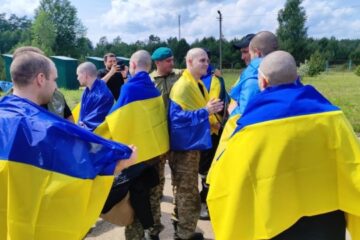Since 2022, Russia has intensified its hybrid war against the European Union. Russian ships have been damaging cables in the Baltic Sea, and its propaganda machine is increasingly trying to influence the Europeans. The threat coming to Estonia from the Russian Federation has long been a major concern among the society. For example, Moscow has for decades accused Tallinn of allegedly oppressing the rights of the Russian minority in Estonia.
Ukrinform was delighted to invite Mr. Gert Antsu, Director for Ukraine, Moldova, and the South Caucasus at the Ministry of Foreign Affairs of Estonia, for a brief interview about cooperation between that Baltic country and Eastern European countries, the Kremlin’s hybrid operations, and the EU accession process.
Mr. Antsu previously served as Ambassador to Ukraine (2016-2019) and Belgium, Luxembourg, and Switzerland (2012-2016), as well as Deputy Permanent Representative to the European Union. Gert held senior positions in the government sector for nearly 20 years and has contributed significantly to making Estonia the exemplary country it has become. This has included preparing Estonia for European Union membership the and coordinating the country’s EU policy after the accession.
Mr. Gert was so kind to give this interview in Ukrainian.
THE EU EASTERN PARTNERSHIP INITIATIVE IS USEFUL IN TERMS OF ACCESSION PREPARATIONS AND EXPERIENCE SHARING
– Before Russia’s full-fledge invasion of Ukraine, the Eastern Partnership initiative included cooperation with Ukraine, Armenia, Georgia, Azerbaijan, Moldova, and Belarus. How does the Estonian Foreign Ministry currently view this cooperation in the context of the regional security situation?
– In Ukraine and Moldova, the prime focus is currently on accession to the European Union, but the Eastern Partnership initiative can be useful in preparing for membership, for discussions on reforms, for experience sharing and infrastructure projects as part of unification with Europe.
Indeed, we have problems as well. Belarus, being a dictatorship sided with Russia, is not engaged in this. However, its opposition and civil society are still involved in this multilateral format. It is more useful for them than for your country.
Authoritarian tendencies are gaining strength in Georgia. Their accession is on hold, but they are participating in the Eastern Partnership initiative, even though Brussels has made a political choice not to have direct political contacts with the Georgian government.
As regards Armenia, they still need to make many reforms, following the example of Ukraine and Moldova. Here, an exchange of experience will be helpful.
Due to the war ongoing and negotiations with the EU, we understand that Ukraine lacks the strength for the Eastern Partnership, but you, hopefully, see its benefits for yourself and for others.
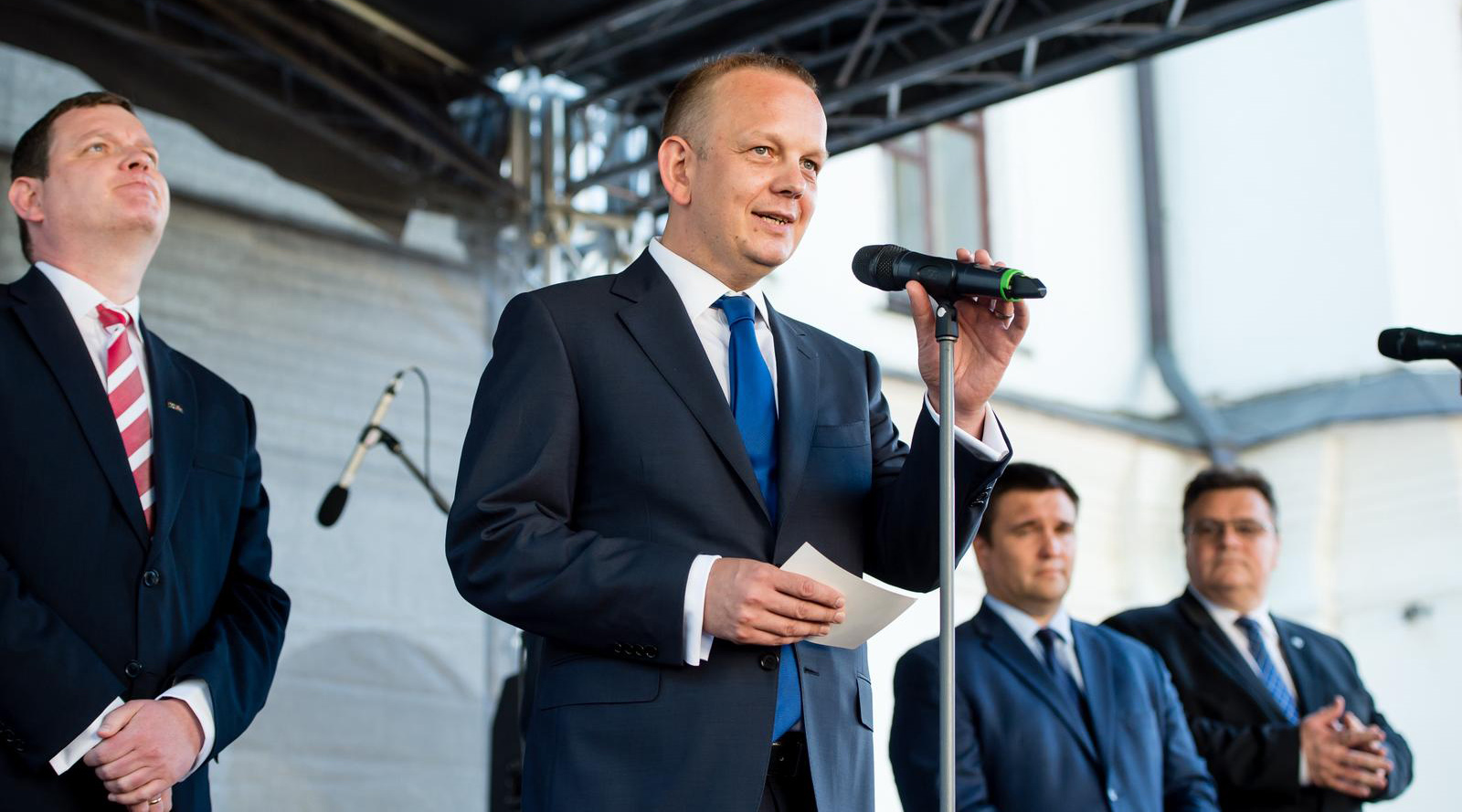
– You served as Ambassador of Estonia to Ukraine for three years, starting in 2016. Do you think that the full-fledge Russian aggression could have been prevented if Western countries had acted more decisively after Russia seized Crimea and started the war in the east?
– Yes, of course. Before the full-scale invasion, the Russian leadership publicly said that the sanctions would be short-lived and not very serious. This was a mistake, but they were guided by their experience when there was no such response in 2014.
Had they been sure that Western support for Ukraine would be that great, they would never have attacked.
EVERYONE IN THE ESTONIAN MFA IS DEALING WITH UKRAINIAN ISSUES
– How has the Russian threat directly affected your work at the Department for Ukraine, Moldova and South Caucasus?
– This war affects the work of not my department alone, but all the Estonian Ministry of Foreign Affairs. Everyone is dealing with Ukraine issues: lawyers – with the tribunal, some people – with sanctions, and even employees who are not related to Ukraine are involved, because there is Russian pressure on Moldova, the countries of the South Caucasus, hybrid attacks, propaganda, disinformation, cyberattacks.
– How do people in Estonia perceive the threat currently coming from Russia? Are you expecting a real conventional war in the coming years, or hybrid operations?
– I think that it is more difficult for them to act here by way of hybrid attacks or through propagating disinformation. It is impossible to make the Estonians convinced that Russia is doing right and is a positive example to emulate. People simply do not believe in it.
However, propaganda is working for the Russian-speaking residents of Estonia who are staying in the information loop of the Russian media. There is as well more covert anti-Western propaganda about gender issues, sexual minorities, and the fight against climate change.
Russia is working in Estonia, but, fortunately, it is not easy for it to do so.
– Can you draw parallels between Russia’s hybrid operations in Ukraine and Estonia, given that both our countries have Russian-speaking minorities?
– There are similarities. Russia cannot convince that she is a positive example to emulate, so it creates chaos so that people cannot sort out who is right and who is to blame. Some of the Russian messages, like the one that the cause for the war was allegedly NATO expansion, are similar, but others are not.
It is far easier for us after three years of the Russian-Ukrainian war, because most people in Ukraine, Estonia and Western Europe see that Russia is an aggressive state, that not just Putin, but also Great-Russian chauvinism is a danger to the whole world.
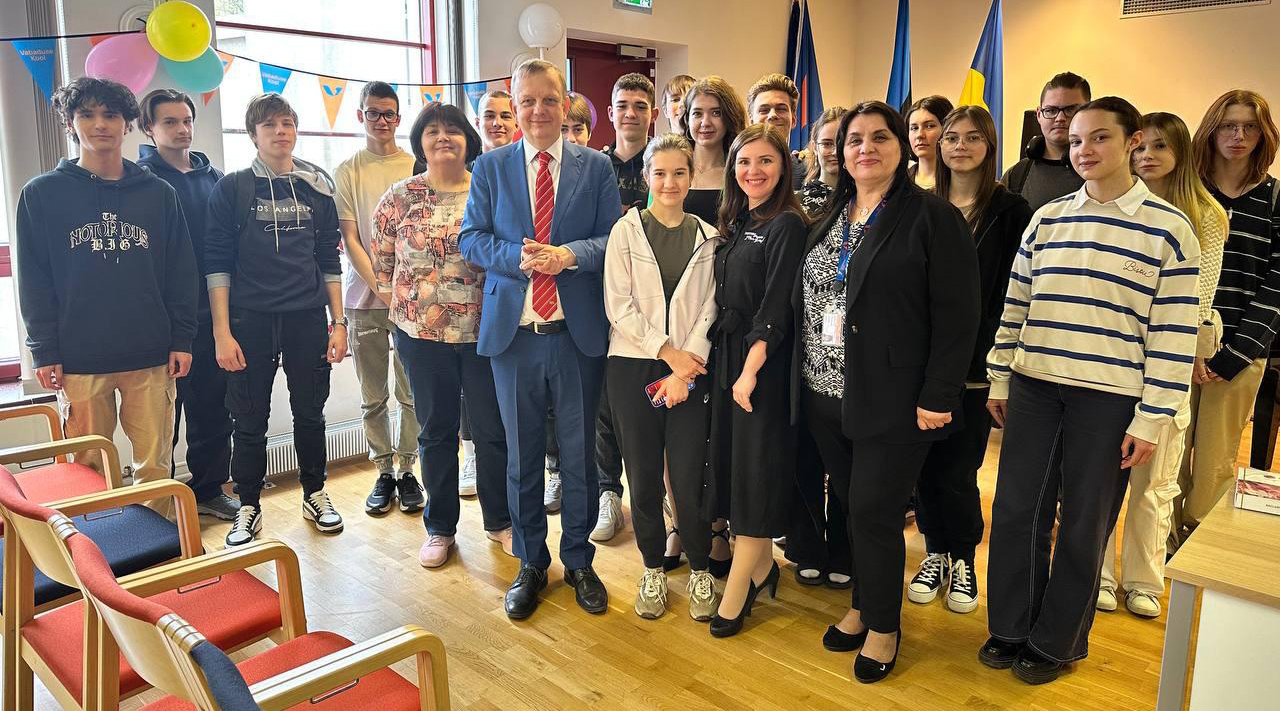
– Do you have to discuss the Russian threat with other European partners who view it differently?
– Yes, but again, today it is much easier than it was five years ago. Back then we would say that Russia is more dangerous than, say, ISIS and no one would believe us. Today everyone knows what Russia is like and what is happening in Ukraine, although, unfortunately, the price of this knowledge is so high for you.
HUNGARY’S POLITICAL DEMANDS ARE UNFAIR
– Currently, our EU accession process is being blocked by Hungary. There are even opinions being expressed that, perhaps, we should part ways with Moldova. How, in your opinion, can Ukraine override the political veto and avoid the fate of North Macedonia?
– It is extremely important that you move towards membership. But the example of North Macedonia shows that one country of the European Union can block the whole process. It seems like Ukraine, at first, could not believe it, hoping its friends would handle this problem in some way.
We must put pressure on Hungary, even if it takes time. Its political demands are unfair, and they will not be solved by themselves. This needs to be fought against.
We know this from our own experience. When Estonia joined the EU 25 years ago, we were told that we were discriminating against the Russian-speaking population, but this was Russian propaganda.
– Could you list ways of putting pressure on Hungary? Prime Minister Viktor Orban continues to be opposed to our accession and, it seems, not enough is being done to change his position.
– This is related to the tactical moves that are difficult to talk about publicly. Hopefully, increasingly more countries in Europe understand that this problem is not just for Ukraine or its friends, but for all the European Union.
– You resided in the Ukrainian capital for three years, learned the Ukrainian language and got acquainted with the public and everyday life here. What is the first thing you recall when talking about Kyiv?
– I recall people, my friends whom I used to meet in Kyiv. During the war, everything is much more difficult, because some of them are now living abroad, others fought on the frontline.
Still, I am delighted to meet my friends in the Ukrainian capital, in Estonia and in other countries.
At this time of year, chestnuts bloom in my country too, and Tallinn looks like Kyiv.
Interviewed by Ivan Kosyakyn, Kyiv

